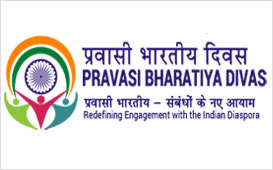RTI Act - Annexure I
RTI Act - Annexure II
RTI Act - Annexure III
Appendix 1
RIGHT TO INFORMATION
The Right to Information under the provisions of the RTI Act is available to the citizens of India only. RTI Act is an important legislation designed to promote transparency and accountability in the functioning of public authorities.
The full text of the RTI Act is available on the website: RTI-Act.pdf.
The RTI Act also provides for appeals by aggrieved persons to the Central Information Commission of the Government of India.
Indian citizens resident in Bali and other 14 provinces in its jurisdiction i.e. North Sulawesi, Goronatlo, Central Sulawesi, South Sulawesi, Southeast Sulawesi, West Sulawesi, West Nusa Tenggara (NTB), East Nusa Tenggara (NTT), Maluku, North Maluku, Papua, West Papua, East Kalimantan and South Kalimantan may seek information in writing on payment of requisite fee during office hours on working days as per procedure laid down in the RTI Act, 2005.
Contact details of officers for addressing applications under Right to Information Act, 2005:
Appellate Authority and Nodal Officer
Dr. Shashank Vikram,
Consul General of India
Email: cg.bali@mea.gov.in
Public Information Officer
Shri Lawlesh Kumar
Vice Consul
Email: cul.bali@mea.gov.in
Applications seeking information under the Act may be sent along with the prescribed fee in Rupiah, equivalent to Indian Rupees Ten (10) in cheque or demand draft favoring Consulate General of India, Bali or by depositing the amount at the Consular wing of the Consulate against receipt.
It may be noted that information provided under the Act is available to citizens of India only. Applications should be submitted along with documentary proof of Indian Citizenship (like copy of personal particulars pages of passport). More information is available athttp://rti.gov.in. The mailing address is Consulate General of India, Jl. Raya Puputan 163, Renon, Denpasar, Bali-80235, Indonesia.
It may also be pointed out that as per section 6(1) (a) of the RTI Act, 2005, a person who desires to obtain information under the Act is required to submit the application to the Information Officer of the “concerned public authority”. Applicants are, therefore, advised to send their requests under the RTI Act to thePost only when the subject matter can reasonably be presumed to pertain to the Post. While section 6 (3) provides for the transfer of an application by a receiving PIO to another [concerned] PIO, this is clearly meant to cover situations where the application is addressed to a PIO on the assumption that it has been directed to the concerned PIO. Where the information required obviously does not pertain to the Post, the application may be addressed to the concerned PIO directly.
Payment of RTI fee online - Electronic Indian Postal Order (eIPO)
The scheme of Electronic Indian Postal Order (eIPO) has been launched by the Department of Posts, Ministry of Communications and Information Technology, in association with Department of Personnel and Training (DoPT). This would enable the Indian citizens abroad to pay the RTI fee online.
An Indian Postal Order can be purchased electronically by paying a fee on-line through e-Post Office Portal or through India Post website. The web-links for payment are:
www.indiapost.gov.in
www.epostoffice.gov.in
The Credit Card or Debit Card of any bank powered by Visa/Master can be used for this purpose.
Procedure
The RTI applicant is required to register on the website to create his/ her profile. Then he has to select the Ministry/ Department from whom he desires to seek information under the RTI Act. The eIPO is generated which can be used to seek information from that Ministry/ Department only. A printout of the eIPO is required to be attached with the RTI application sent in hard copy. In case RTI application is filed electronically, the eIPO is enclosed as an attachment. The profile is required to be created during the first time only.
The RTI application accompanied by an eIPO is similar in all respects to the RTI application accompanied by fees through any other approved mode. All the provisions regarding eligibility, time limit, exemptions etc; as provided in the RTI Act, 2005 continue to apply.
Currently, this facility is available only for Indian Citizens living anywhere other than in India. By this measure, those living abroad would be facilitated to seek information under the RTI Act, 2005. It is hoped that in future, this facility would be extended to all citizens within the country too. Any public authority which accepts a postal order should also accept an eIPO.
Extension of IPO Facility to Indians citizens residing in India
The Department of Posts has extended the “eIPO” (electronic Indian Postal Order) service to Indian citizens residing in India also w.e.f. 13.02.2014, for purchasing Indian Postal Order electronically by paying a fee online through e-Post Office Portal i.ewww.epostoffice.gov.in. It can also be accessed through India Post website www.indiapost.gov.in
This facility has been provided for Indian citizens to facilitate them to seek information from the Central Public information Officers (CPIOs) under the RTI Act, 2005. Debit or Credit Cards of any Bank powered by Visa/ Master can be used to purchase e-IPO.
The user needs to get registered at the website. He has to select the Ministry/ Department from whom he desires to seek the information under the RTI Act and the eIPO so generated can be used to seek the information from that Ministry/Department only. A printout of the eIPO is required to be attached with the RTI application. If the RTI application is being filed electronically, eIPO is required to be attached as an attachment.
This facility is only for purchasing an Indian Postal Order electronically. All the requirements for filling an RTI application as well as other provisions regarding eligibility, time limit, exemptions etc. will continue to apply.
An eIPO so generated must be used only once with an RTI application.
Information required under Section 4(1)(B) of RTI Act, 2005
INFORMATION ABOUT THE CONSULATE GENERAL OF INDIA, BALI, REQUIRED UNDER SECTION 4(1) OF THE RTI ACT, 2005.
|
(i)
|
Particulars of Consulate’s functions and duties
|
The Consulate is headed by Consul General and has following sections ( 1 ) Administration (2) Visa (3) Passport, PIO, OCI and Consular
Each section is headed by a Consul.
The functions of the Consulate inter alia, include to maintain and develop interaction with various British and Indian community, cultural and commercial organizations, issue of passports, visas, OCI cards and PIO cards.
The Consulate functions within the purview of business allocated to the Ministry of External Affairs under the Government of India’s Allocation of Business Rules and Transaction of Business Rules.
|
|
(ii)
|
The powers and duties of its officers and employees
|
General Administrative powers are derived from IFS(PLCA) Rules, as amended from time to time.
Financial powers of the officers of the Consulate have been detailed in the Delegated Financial Powers of the Government of India’s Representative Abroad.
Powers regarding consular and passport etc are derived from the Passport and Consular Manuals.
The officers of the Consulate function under the guidance and supervision of the Consul General.
|
|
(iii)
|
The procedure followed in the decision making process, including channels of supervision and accountability
|
Decisions are taken under the instructions and supervision of the Consul General.
|
|
(iv)
|
The norms set by it for the discharge of its functions
|
Norms are set under the instructions and supervision of the Consul General.
|
|
(v)
|
The rules, regulations, instructions, manuals and records, held by it or under its control or used by its employees for discharging its functions
|
IFS PLCA Rules and annexure.
Delegated Financial Powers of Government of India’s representative abroad Rules.
Passport Manual, Visa Manual and Manuals on Office Procedures
Other central government rules and manuals published by Central Government.
|
|
(vi)
|
A statement of the categories of documents that are held by it or under its control
|
Documents / files relating to Cultural and Commercial activities.
Passport and Consular service files including record of passports and consular services rendered.
Record of visa applications.
|
|
(vii)
|
The particulars of any arrangement that exists for consultation with, or representation by, the members of the public in relation to the formulation of its policy or implementation thereof.
|
The Consulate functions within the norms set by the Ministry of External Affairs. Policy is implemented by the Consulate under the guidance and supervision of the Consul General
|
|
(viii)
|
A statement of the boards, councils, committees and other bodies consisting of two or more persons constituted as its part or for the purpose of its advice, and as to whether meetings of those boards, councils, committees and other bodies are open to the public, or the minutes of such meetings are accessible for public.
|
The Consulate interacts regularly with representatives of the local government representatives, Indian Diaspora, NRIs, think tanks and academician.
|
|
(ix)
|
A directory of its officers and employees
|
A directory is given at Annex–I
|
|
(x)
|
The monthly remuneration received by each of its officers and employees including the system of compensation as provided in its regulations.
|
A statement of monthly remuneration is at Annex–II
|
|
(xi)
|
The Budget allocated to each of its agency, indicating the particulars of all plans, proposed expenditure, and reports on disbursements made
|
Budget figures for the current financial year are given in the statement at Annex–III
|
|
(xii)
|
The manner of execution of subsidy programmes, including the amounts allocated and the details of beneficiary of such programmes.
|
The Consulate does not have any subsidy programme.
|
|
(xiii)
|
Particulars of recipients of concessions, permits or authorizations granted by it
|
No concessions / permits are granted by the Consulate.
|
|
(xiv)
|
TDetails in respect of the information available to or held by it, reduced in an electronic form
|
Citizens can access information held by the Consulate in the electronic form through our website www.cgibali.gov.in . Further information can also be obtained from the following website held by Ministry of External Affairs, Government of India, New Delhi
| Websites |
Details |
www.mea.gov.in  |
Main website of the Ministry of External Affairs |
www.mealib.nic.in  |
Website of the library of the Ministry of External Affairs |
www.mea.gov.in  |
Web link to access websites of various Indian Missions and Posts abroad |
www.passportindia.gov.in  |
Website of the Passport Seva Project of the Consular, Passports and Visa (CPV) Division of Ministry of External Affairs |
|
|
(xv)
|
The particulars of facilities available to citizens for obtaining information, including the working hours of a library or reading room, if maintained for public use.
|
All relevant information is made available through the Consulate’s website.
|
|
(xvi)
|
The names, designations and other particulars of the Public Information Officers.
|
Public Information Officer
Shri Lawlesh Kumar
Vice Consul ((Admn)) & Public Information Officer
Jalan Raya Puputan No. 163, Renon Denpasar Bali
Tel No. (0361) 259506
Email:cul.bali@mea.gov.in
|
|
(xvii)
|
Such other information as may be prescribed and thereafter update these publications every year.
|
The Consulate’s website has information which is updated on a regular basis.
|

























